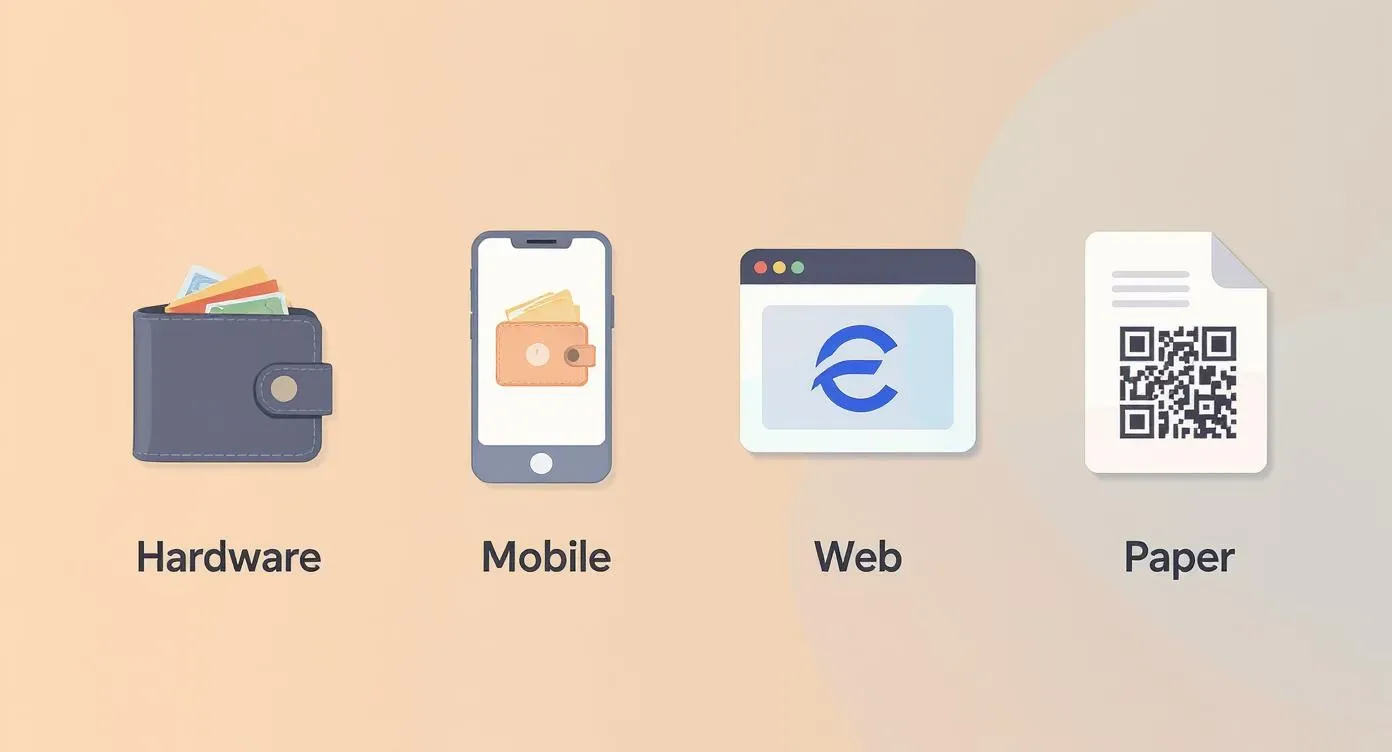Crypto Wallets Explained: How to Choose the Right One
1. Why a Wallet Matters
A crypto wallet is your personal key‑ring to the blockchain. It protects the private keys that prove ownership of your coins. Lose the keys—lose the assets. Pick the right wallet, and everyday crypto life becomes safer and easier.
2. The Four Main Wallet Families
Wallet TypeCustodyTypical FormBest For
Hardware
Self‑custody
USB‑device (Ledger, Trezor)
Long‑term storage, large balances
Software
Self‑custody
Mobile/Desktop app (Zengo, Exodus)
Daily use, DeFi, NFTs
Web / Exchange
Custodial
Browser or exchange app (Binance, Kraken)
Traders, beginners
Paper / Cold Storage
Self‑custody
Printed seed/QR
“Deep freeze”, inheritance
Key takeaway: Custodial wallets trade control for convenience; self‑custody puts full responsibility—and freedom—on you.
3. Decision Checklist
- Security vs. Convenience – Hardware wins on safety, mobile wins on speed.
- Supported Assets – Multi‑chain wallets if you love altcoins; hardware for blue‑chips.
- Regulatory Fit – Check local rules (FCA in UK, FINTRAC in Canada, state regs in US).
- Recovery & Backup – Seed phrase, MPC key‑sharding, or multi‑sig—choose a scheme you’ll actually follow.
- Extra Features – Staking, NFT gallery, debit card, copy‑trading bots.

4. Quick Wallet Match‑Ups
PersonaBest Choice
First‑timer (£/CA$100‑1 000)
Custodial exchange wallet → upgrade later
Freelance earner
Mobile self‑custody wallet with fiat on‑ramp
Long‑term HODLer
Hardware wallet + steel seed backup
NFT/DeFi fan
Multi‑chain software wallet + browser extension
Small business
Multi‑sig hardware or MPC wallet for team approvals
5. Setting Up Safely in Five Steps
- Buy from the source – avoid resellers.
- Create & verify backup – test restore before big deposits.
- Enable 2FA everywhere – PIN, biometrics, whitelists.
- Send a test transaction – £/CA$5 first, then larger sums.
- Stay updated – firmware/app updates close security gaps.
6. Final Thoughts
The best wallet is the one you’ll actually use correctly. Start simple, diversify as your portfolio and confidence grow, and always keep at least one offline backup. Protecting your crypto can become as routine as locking the front door.